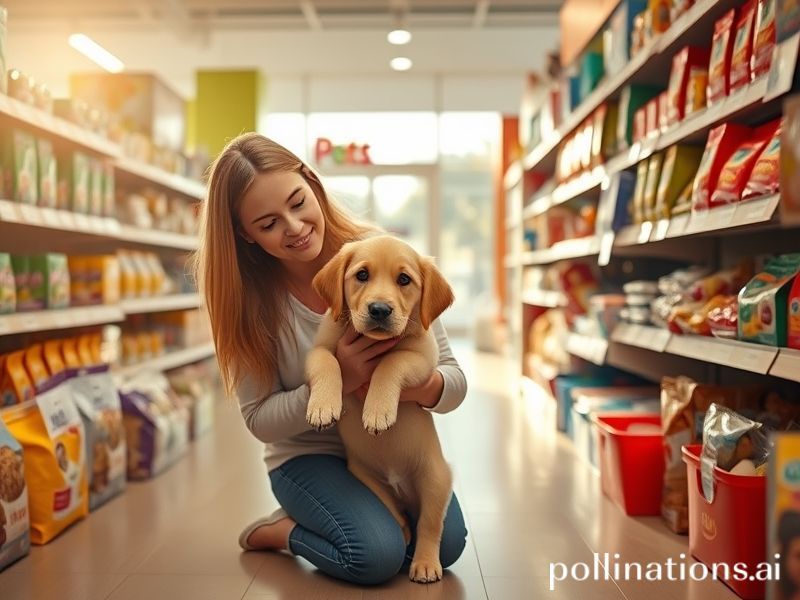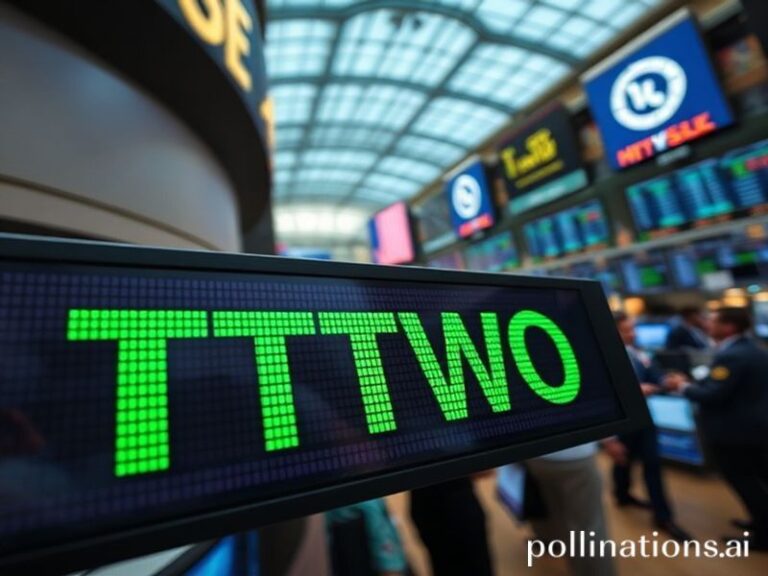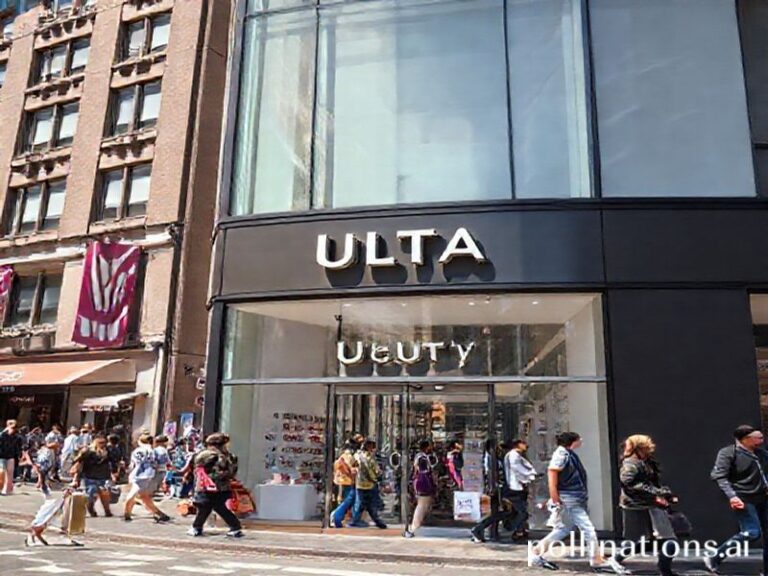Global Pet-Industrial Complex: How a British Retailer’s Executive Shuffle Reveals Our Absurd Economic Priorities
**The Global Implications of Lyssa McGowan’s Pets at Home: When Corporate Pets Become International Players**
In the grand theater of international commerce, where titans clash over semiconductor supplies and nations wage economic warfare through trade tariffs, one might be forgiven for missing the seismic shifts occurring in Britain’s pet care retail sector. Yet here we are, witnessing Lyssa McGowan’s departure from Pets at Home—a development that, while seemingly parochial, serves as a perfect metaphor for our increasingly absurd global economy.
McGowan, the former Sainsbury’s executive who presumably knows her way around both kibble and corporate boardrooms, has decided to step down as chair of Pets at Home. The announcement sent ripples through the City of London, though one suspects the average British goldfish remained blissfully unaware of this personnel change affecting its supply chain.
From an international perspective, this seemingly domestic British story illuminates several uncomfortable truths about our interconnected world. First, there’s the undeniable fact that pet humanization—a distinctly First World phenomenon where animals are treated better than most humans in developing nations—has become a multi-billion-dollar global industry. While children in Yemen search for clean water, British dogs enjoy artisanal treats that cost more than the daily wage of a Bangladeshi textile worker.
The numbers are almost comically obscene. The global pet care market, valued at around $261 billion in 2023, could theoretically fund the United Nations’ humanitarian operations for several years. Instead, it supports an ecosystem of organic pet food, designer accessories, and yes, specialty retailers like Pets at Home, where the annual revenue of £1.4 billion could probably vaccinate most of sub-Saharan Africa.
McGowan’s departure comes at a fascinating inflection point. The pet industry, much like everything else in our late-stage capitalist fever dream, faces the twin pressures of inflation and changing consumer behavior. Even Britain’s notoriously pet-obsessed population is apparently reconsidering whether Mr. Whiskers really needs that cashmere sweater or the premium grain-free diet that costs more than feeding an actual human child.
The international implications are deliciously ironic. While Western nations grapple with pet obesity epidemics—literally overfeeding their animals while humans elsewhere starve—emerging markets are rapidly adopting these same consumption patterns. China’s pet industry is growing at 20% annually, because apparently even Communists can’t resist the siren song of diamond-studded collars. One can almost hear Karl Marx spinning in his grave fast enough to power a small turbine.
What’s particularly amusing is how pet retail has become a bellwether for broader economic trends. When Pets at Home sneezes—whether from supply chain disruptions, changing consumer spending, or executive musical chairs—the global economy catches cold. Those organic, free-range chicken treats for dogs? They’re caught in the same inflationary spiral affecting human food prices, creating a perverse competition between kibble and children’s breakfast cereal.
As McGowan exits stage left, presumably to spend more time with her own pets (or perhaps to contemplate the cosmic absurdity of modern capitalism), her departure serves as a reminder that even the most mundane corners of commerce have global ramifications. In a world where Russian oligarchs buy British football clubs and Chinese investors snap up American pigs, the humble neighborhood pet shop has become an unlikely player in the international order.
The next time you see someone pushing a stroller containing a dog wearing a raincoat—yes, this is a real thing—remember that you’re witnessing not just individual eccentricity but a global economic force that says more about our civilization than most UN reports. We are, it seems, living in the age of peak absurdity, where corporate pets earn more sympathy than actual people and where a British retailer’s boardroom shuffle matters more than entire humanitarian crises.
Sleep well, Mr. Whiskers. Your comfort apparently drives the global economy now.







